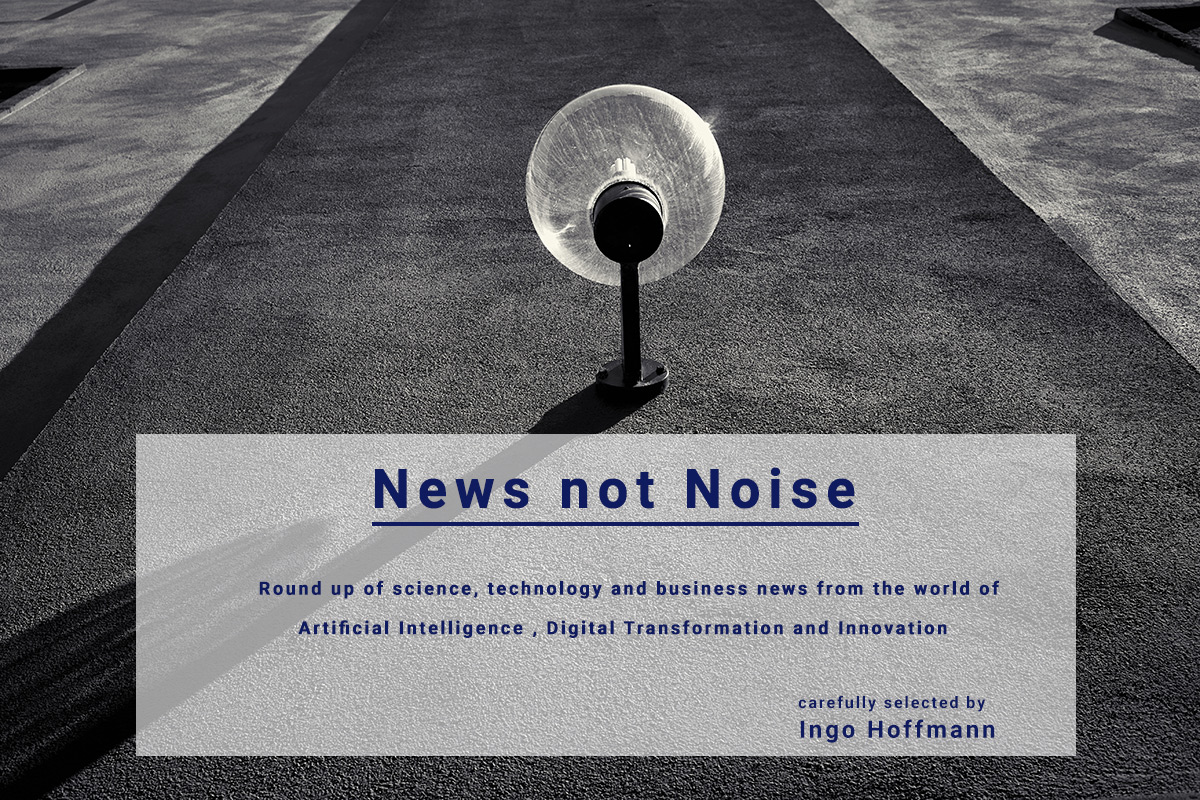
News not Noise – 05/2018
From now on you will see more blog posts and a regular News-not-Noise newsletter.
This week is a mixed bag of interesting readings on the impact of AI on businesses and the question Who is going to make money. We also look at some impressive numbers on the growth of AI computing power and answer the question, why life long learning will become even more important with AI
Will You Embrace AI Fast Enough? | AT Kearney
The emergence of a technology that teaches machines to think like people has vast implications for individual workers, businesses, industries, and the economy as a whole. Machines have already conquered many blue-collar jobs (for example, manufacturing and manual labor) and now they are taking aim at white-collar jobs. Within companies, AI will reshape knowledge-worker functions ranging from sales and marketing to back-o ice administration.
Successful companies will let business strategy lead AI deployment, not the other way around. They will focus on what their business needs, not what the technology can do.
Who Is Going To Make Money In AI? | Towards Data Science
Simon Greenman is asking who will reap the economic benefits of the AI rush? The mass of startups who are all gold panning? The corporates who have massive gold mining operations? The technology giants who are supplying the picks and shovels? And which nations have the richest seams of gold?
Interesting to read that the Enterprise Solutions space and vertical solutions might be the best market for AI startups.
Great read
Automation Will Make Lifelong Learning a Necessary Part of Work | HBR
Jacques Bughin, Susan Lund and Eric Hazan argue in this HBR article that adding new skills (or retraining) is the imperative of the coming decade. It is a challenge not just for companies, which are on the front lines, but also for educational institutions, industry and labor groups, philanthropists, and of course, policy makers, who will need to find new ways to incentivize investments in human capital.
They argue that the skill shift is not only a challenge, it is an opportunity. If companies and societies are able to equip workers with the new skills that are needed, the upside will be considerable, in terms of higher productivity growth, rising wages, and increased prosperity
AI and Compute | OpenAI
OpenAI has released an analysis showing that since 2012, the amount of compute used in the largest AI training runs has been increasing exponentially with a 3.5 month-doubling time (by comparison, Moore’s Law had an 18-month doubling period). Since 2012, this metric has grown by more than 300,000x (an 18-month doubling period would yield only a 12x increase). Improvements in compute have been a key component of AI progress, so as long as this trend continues, it’s worth preparing for the implications of systems far outside today’s capabilities.
Google has released seven principals that will guide their use and development of AI. This is a good start and I believe many companies will follow as they make AI part of their core business. We have to see how google will execute on his. Who will oversee the compliance with the principal. And what will Alphabet do, Google‘s mothership?



